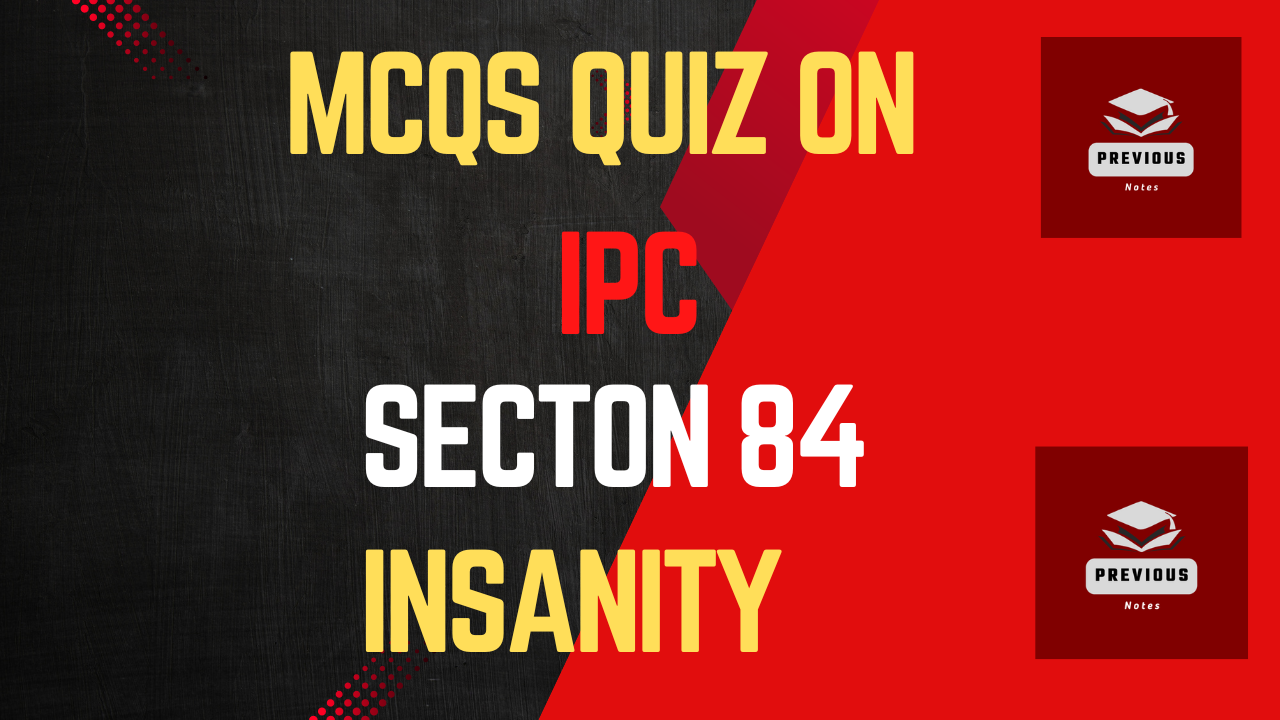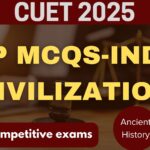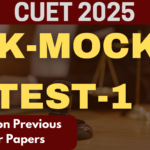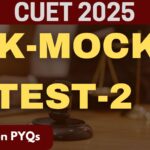Practice IPC MCQs Quiz for Free: Section 84 | Insanity
IPC MCQs Quiz on Insanity (Section 84)
IPC MCQs Quiz on Section 84
Question
Your answer:
Correct answer:
Your Answers
Important MCQs
- Legal insanity under the Indian law means
- a) impairment of cognitive faculty
- b) impairment of emotional faculty
- c) Impairment of will faculty
- d) none of the above
- Correct Answer: impairment of cognitive faculty
- “PRINCIPLE: Nothing is an offence which is done at the time when the accused is unsound and he is not aware of consequences of his act or that his act is wrong or contrary to law. FACT: Surender received divine orders in his sleep at to sacrifice his one year old child and then he will go to heaven after dying. He carries out the order and kills his son. He is:”
- a) guilty of murder
- b) not guilty of any offence since it was the order of God
- c) can plead unsoundness of mind as a defense and he should not be charged for murder
- d) cannot be held liable for murdering his own child
- Correct Answer: guilty of murder
- Which of the following type of Insanity is recognized as a defense under the IPC?
- a) Legal insanity
- b) Impulsive insanity
- c) Medical insanity
- d) All of the above
- Correct Answer: Legal insanity
- Z, a person of unsound mind, attempts to kill A. Which one among the following statements, as per the provisions of IPC 1860, is correct?
- a) Z is not guilty of any offence but A has a right of private defence
- b) A has no right of private defence against Z
- c) Z is not guilty of any offence and A has no right of private defence against Z
- d) Z is guilty of attempt to murder
- Correct Answer: Z is not guilty of any offence but A has a right of private defence
- Insanity produced by drunkenness is a
- a) weak defence to a crime charged
- b) way to reduce the gravity of crime charged
- c) good defence to the crime charged
- d) way to increase the gravity of crime charged
- Correct Answer: weak defence to a crime charged
- Which one of the following statements is correct? Insanity is Defence under section 84 of the Indian Penal Code relates to
- a) legal insanity
- b) unsoundness of mind of any kind
- c) medical insanity
- d) congenital insanity
- Correct Answer: legal insanity
- Under which Section of the Indian Penal Code the act of a person of unsound mind is not an offence?
- a) Section 84
- b) Section 83
- c) Section 82
- d) Section 85
- Correct Answer: Section 84
- Which one of the following defence is related to McNaghten’s Case (1543)
- a) Insanity
- b) Infancy
- c) Intoxication
- d) Consent
- Correct Answer: Insanity
- Z, under the influence of madness attempts to kill A. In this case which of the following is correct?
- a) Z is guilty of no offence, but A has the right of private defence.
- b) Z is guilty of no offence, but A has no right of private defence.
- c) Z is guilty of attempt to murder, but A has right of private defence.
- d) None of the above is correct.
- Correct Answer: Z is guilty of no offence, but A has the right of private defence.
- Insanity is?
- a) Incapable of knowing the nature of act committed
- b) Lack of free will
- c) Incapacity produced due to drunkenness
- d) Diseased mind
- Correct Answer: Incapable of knowing the nature of act committed
- “Expression ‘unsoundness of mind has not been defined in Indian Penal Code and has mainly been treated as a equivalent to insanity. An accused who seek exoneration from liability of any act under Section 84 of IPC is to prove legal insanity and not medical insanity.” It was held by the Supreme Court in following case:
- a) Surendra Misra v. State of Jharkhand
- b) Abrar v. State of UP
- c) CM. Sharma v. State of A.P.
- d) Gita v. State of U.P.
- Correct Answer: Surendra Misra v. State of Jharkhand
- Which one of the following is the correct statement? The defence of insanity under Section 84 of IPC requires that unsoundness of mind should be there at the time of:
- a) commission of the offence
- b) trial
- c) investigation
- d) judgement
- Correct Answer: commission of the offence
- Defence of Insanity is developed on which of the following?
- a) McNaughten’s Rules
- b) Equivocality test.
- c) Irresistible impulse
- d) Automatism
- Correct Answer: McNaughten’s Rules
- According to McNaughten’s Rule, legal insanity is quite different from medical insanity. It relates to the
- a) loss of cognitive faculties
- b) total loss of cognitive faculties
- c) congenital insanity
- d) None of the above
- Correct Answer: loss of cognitive faculties
- Section 84 of IPC is based on
- a) McNaughten Rule
- b) Proximity Rule
- c) Rule of Common Intention
- d) Doctrine of Transferred Malice
- Correct Answer: McNaughten Rule
- Person who may be said to be of unsound minds
- a) an idiot
- b) a madman
- c) one who is drunk
- d) all of the above
- Correct Answer: all of the above
- “A” under the influence of unsoundness attempt to kill “B”. “B” in attempting to defend himself caused grievous hurt to “A”. Here
- a) Both “A” and “B” are excused from liability
- b) “B” commits no offence and “A” is liable for attempt to murder
- c) “A” commits no offence and “B” is liable for grievous hurt
- d) “A” is liable for attempt to murder and “B” is liable for causing hurt
- Correct Answer: Both “A” and “B” are excused from liability
Practice IPC MCQs Quiz for Free: Section 81 | Necessity
IPC MCQs Quiz on Insanity (Section 84)
IPC MCQs Quiz on Section 84
Question
Your answer:
Correct answer:
Your Answers
You May Also Like:
Indian Penal Code MCQs Quiz: Section 1 to 5
Indian Panel Code MCQs Quiz on Section 511 and Attempt
IPC MCQs Quiz on Sec. 76 and Sec. 79 | Quiz on Mistake
Practice IPC MCQs online for free (Section 78)
Practice IPC MCQs Quiz for free | Section 81 MCQs | Necessity
Practice IPC MCQs online for free : Infancy (section 82-83)
Specific Principles of Criminal Law | LLM Previous Year Paper 2024 | CCSU
Specific Torts | LLM 4th Semester Previous Year Paper 2024 | CCSU
History and Basic Principles of Criminal Law | Previous Paper 2023
LLM Previous Year Paper 2023 | PRIVILEGED CLASS DEVIANCE
PENOLOGY PREVIOUS YEAR PAPER | LLM | CCSU
LLB Previous Year Paper 2023 | Constitutional Law II | CCSU
LLB Previous Year Paper 2023 | Legal and Constitutional History | CCSU
LLB Previous Year Paper 2023 | Jurisprudence II | CCSU
LLB Hindu Law Previous Year Paper 2023 | CCSU
Euthanasia in India, Right to die with Dignity
Right to Privacy Case Law Mr. X vs. Hospital Z
Federal Constitution Definition and key points
University of Madras vs. Shantabai,1954: Article 12 Case Law
Article 20 Fundamental Right with Case Laws
Article 19 Fundamental Right of Indian Constitution with 10 Case Laws
Article 358, 359 Fundamental rights during emergency
Parliamentary Privileges and Fundamental Rights with Case Laws
Article 14 Fundamental Right with Case Laws
Article 15 Fundamental Right with Case Laws
Article 12 Fundamental Right with Case Laws
DOMESTIC VIOLENCE AS TORT | APPLICATION OF TORT LAW
Crimes without Mens Rea? Statute without Mens Rea.
Definition of crime by various jurists, Criminology
Methods of Studying Criminology
All about Capital Punishment with Case Laws
IMPOSSIBLE ATTEMPT | ATTEMPT VS IMPOSSIBLE ATTEMPT
Difference between Preparation and Attempt
Tests to Determine Attempt and preparation | With Case Laws
Specific Principles of Criminal Law | LLM Previous Year Paper 2024 | CCSU
Specific Torts | LLM 4th Semester Previous Year Paper 2024 | CCSU
History and Basic Principles of Criminal Law | Previous Paper 2023
LLM Previous Year Paper 2023 | PRIVILEGED CLASS DEVIANCE
PENOLOGY PREVIOUS YEAR PAPER | LLM | CCSU
LLB Previous Year Paper 2023 | Constitutional Law II | CCSU
Forms of Judicial Process: Adversarial & Inquisitorial
DOMESTIC VIOLENCE AS TORT | APPLICATION OF TORT LAW
Economic Tort | Business Tort: Application of Tort Law
Crimes without Mens Rea? Statute without Mens Rea.
IMPOSSIBLE ATTEMPT | ATTEMPT VS IMPOSSIBLE ATTEMPT
Mistake of Fact Vs. Mistake of Law | Sec. 76 of IPC


















Leave a Reply